
The recent and ongoing conflict in the Middle East and the inability of the Muslim nations to take an effective unified stand to deter Israel invokes memories of the Islamic Summit in Lahore where I was fortunate to be present.
In Dec 1973, the President of the Organization for Islamic Cooperation (OIC) announced that the Second Islamic Summit would be held in Pakistan. It was an important event for a nation that was coming to terms with being divided as it would propel Pakistan positively back into the limelight. The Muslim Ummah was also riding the crest with the stand taken by the legendary King Faisal of Saudi Arabia and other Arab oil-producing countries when the US sided with Israel during the 1973 Yom Kippur War. They increased oil prices, banned oil shipments to the United States, and cut production by five percent per month which triggered one of the most traumatic economic crises to afflict the US and other big oil importers. It was against this background that the Islamic Summit of 1974 was held in Lahore.

I was a captain serving in the HQs of a division in Kharian when I was told to report to the corps HQ in Lahore to be an ADC with one of the delegations. I was too young to appreciate the significance of being associated with such a momentous event. I loaded my suitcase and an assortment of uniforms into my white Beetle VW and headed down the GT Road. The following day I reported to the corps HQ along with other ADCs and we were briefed on our duties which I realized were more administrative in nature. Displayed was a list of around 40 countries that had been invited and the Military Secretary (MS) and ADC detailed with each. I was assigned to Upper Volta, an insignificant country in West Africa. Had I arrived a few days earlier and pulled some strings to be detailed with a more important delegation I may have returned with a Rolex.
Preparation for the summit had commenced two months previously. Lahore had only one Five Star Hotel – The Intercontinental and the well-to-do families were requested, and if that didn’t work, cajoled to vacate their mansions for the heads of state. All large cars were also requisitioned voluntarily or pulled off the road. Only one delegate was expected from Upper Volta who was to be accommodated in the Faletti’s Hotel. It was a relic of the colonial era with rooms in double-story structures with deep verandahs and set within large lawns. The Ava Gardener suit was named after the actress who had stayed in it during the filming of Bhowani Junction.
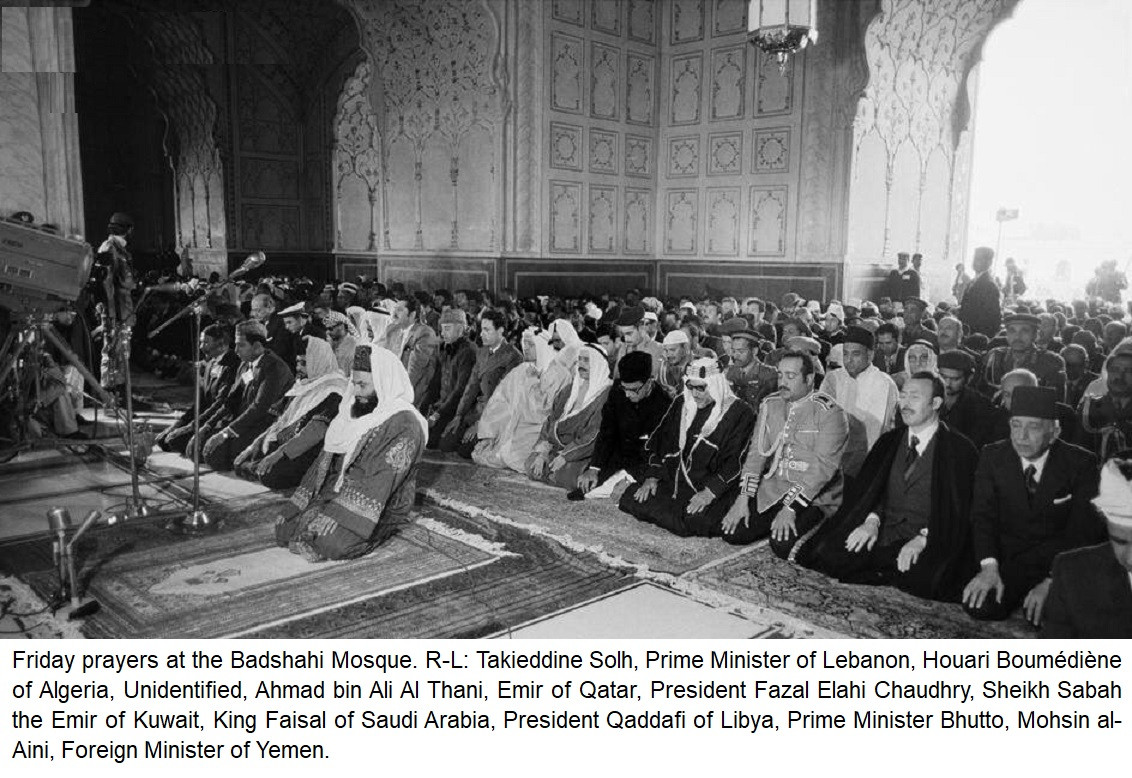
The brigadier and I stayed in two adjoining rooms. He was a chatty officer and easy to get along with. We still had a couple of days to get organized and my first stop was the motor pool of the corps HQ to collect the cars for the delegation. My next stop was closer to the hotel – the basement of the WAPDA House which had been transformed by the Foreign Office (FO) into a control center. There was still no confirmation of the arrival of our delegation but I was given a chit and sent to a store in the basement to collect cigarettes, cigars, spirits, and liquor for the delegation; two bottles of Whiskey, one of brandy, four of Champagne, six of red and white wines and four packs of Beer. The ban on alcohol came four years later by Bhutto who ironically enjoyed drinking Old Monk, one of the most expensive brands of Whiskey.
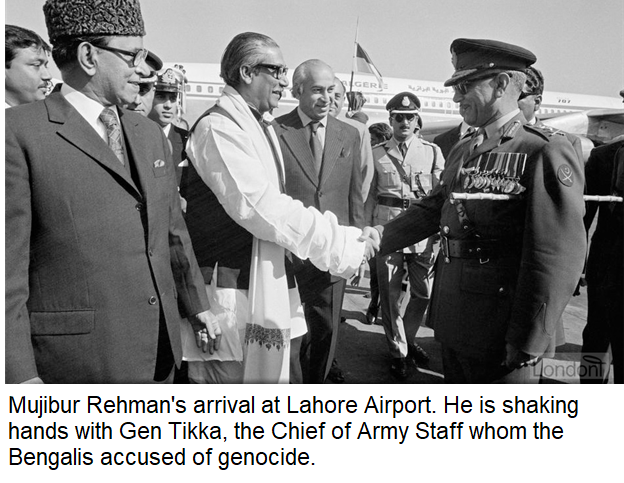
The next day all the MSs and ADCs were briefed at the corps HQ on the arrival/departure of the delegations from Lahore and from the venues, and the programs of events. Apart from the sessions at the Assembly Chambers on the Lahore Mall, there was a seated lunch on the lawns of the Governor's House for the heads of state (for which a special table had been prepared), an evening reception at the Governor’s House, Friday prayers at the Badshahi Mosque, and a grand citizen’s reception at the Shalimar Gardens. I was very impressed by Col Ghaziuddin Rana, the GSO-1 who with his staff had meticulously calculated all the timings. Departing from their residences spread all over the cantonment and Gulberg, the 38 delegations each led by the military police were timed to arrive at an interval of one minute at the designated venue. This was before the advent of computers and achieving such precision entailed meticulous calculations and several rehearsals. PTV ran a marathon transmission covering the events and broadcast the official song for the summit - Hum Mustafavi Mustafavi Mustafavi Hain which was written by Jamiluddin Aali and composed by Suhail Rana.
38 Muslim countries confirmed their attendance including 23 heads of state. Amongst the prominent were, President Sadaat, Sheikh Sabah the Emir of Kuwait, UAE’s Rashid bin Saeed Al-Maktoum, Col Gaddafi, Houari Boumédiène of Algeria, Tun Abdul Razak the Malaysian Prime Minister, Asad of Syria, and Yassir Arafat, to name a few. However, it was the participation of King Faisal that made news and moved the whole world. Conspicuous by his absence was the Shah of Iran because Muammar Gaddafi had been invited. The Shah disliked him because he vehemently accused the Shah of betraying Arab interests by supporting Israel. However, Bhutto was too intelligent to spite the ruler of an important neighbor unless there was a very good reason but more on this later. President Anwar el‐Sadat also didn’t like the Shah. When he was asked by an Iranian television correspondent, “Do you have a message for the Shah of Iran.” President Sadat shrugged and said “No”.
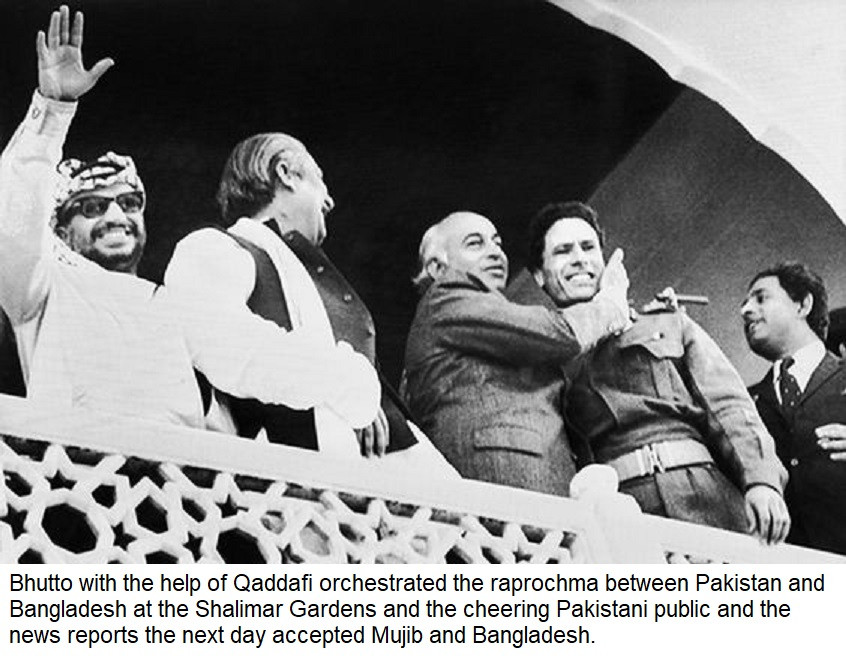
Bhutto held private talks with every head of state at the Governor’s House where he had taken residence. However, he was not present when PM Tun Razak who was also President of the OIC arrived. Javid Ali, of the FO who was escorting Razzak recounts in an article that the Tun felt insulted and belittled and said that he wanted to depart for Malaysia immediately after the close of the afternoon session. Where was Bhutto? Javaid was informed later that he was with Gaddafi but he only realized the significance of this meeting during the reception at the Shalimar Gardens.
The brigadier and I were able to secure invitations to the Shalimar Garden which had been tastefully illuminated with 400 water fountains producing a tranquil melody. The tables were laid out along the central waterway that extended to the end of the garden and we managed to find seats halfway to the main pavilion.
Gaddafi appeared at the Emperor’s Pavilion and waved to a cheering audience. Then as he walked forward to the balcony, he had Bhutto on one side and Sheikh Mujibur Rahman on the other. Pakistan had officially recognized Bangladesh and a delegation of the OIC had flown to Dacca to invite the Bengali leader to the Summit. The aircraft of the Algerian president had flown to Dacca to pick up Mujib who was received at the airport by President Fazal Elahi. Standing in the reception line was the army chief, General Tikka whom the Bangladeshis had titled the Butcher of Bangladesh. According to Javaid, Qaddafi held the hands of the two leaders high and then brought them together in a clasp proclaiming in a loud voice “Akhi! Akhi!” (“brothers” in Arabic). Javaid realized that Bhutto with the help of Qaddafi had orchestrated the moment and the cheering Pakistani public and the news reports the next day accepted Mujib and Bangladesh. Bhutto made up to the Tun during a private meeting and Razaq not only forgave his earlier insult but was full of praise for the Pakistani PM.
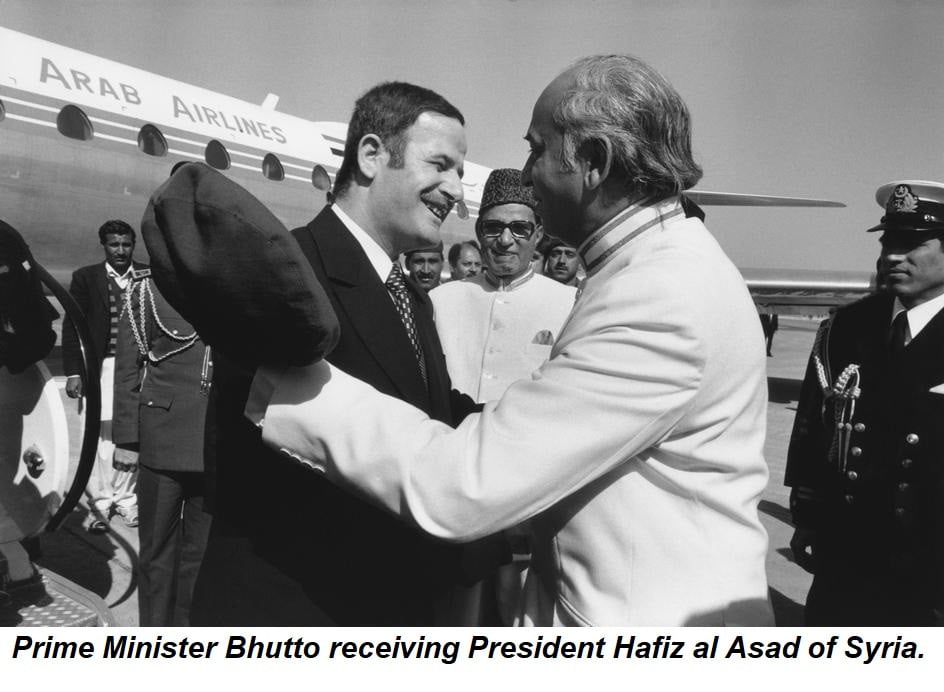
Sadat had such strict security that I was told by the ADC assigned to him that when Sadat slept at night, a colonel sat in front of the door to his bedroom with a loaded machine gun. Gaddafi would not go anywhere without his personal guard. When he entered the assembly chambers for the first time, his armed guard was stopped by security as no weapons were permitted inside the hall. The guard warned, “If I am not allowed in with my gun, President Qaddafi will come out.” Sure enough, Qaddafi was standing in the aisle looking back to see if his guard was coming. Unfortunately, both these leaders died violent deaths as well as several others who attended the Summit of 1974. Just a year after the Summit, King Faisal of Saudi Arabia was assassinated by his half-brother, and five months later Sheikh Mujib was killed in a military coup. Bhutto was also deposed in a coup in 1977 and executed. President Anwar Sadat was assassinated during Egypt’s Annual Victory Day Parade in 1981 and the PLO leader Yasir Arafat was reportedly poisoned by the Mossad in 2004. Finally, in 2011 Qaddafi was murdered by rebels after he had been deposed.
On the last day of the Summit, I carried the small hoard of liquor, spirits, cigarettes, and cigars back to the store in the basement of WAPDA House. There was a young Third Secretary who had a funny expression on his face when I told him that I had come to return it all. “You want to keep some of it?” he asked. I had learned from my father that what belongs to the State, stays with the State. I declined but being a regular smoker, as an afterthought I accepted two cartons of 555 Cigarettes. That was the only thing I carried back to Kharian apart from my memories one of which is a little embarrassing to narrate.
One evening, the brigadier enquired if I had brought my Blue Patrols which is a Winter Mess Dress of Barathea cloth. When I nodded in affirmative, he said, “Wear it and we will go and watch the cabaret and have dinner”. Without knowing what was in store for me, I went through the time-consuming process of wearing it with all the trappings. The hotel cabaret had two performances – one by Aimi Minwala, a well-known Pakistani dancer, and the other by two Lebanese belly dancers. I felt very conspicuous as I accompanied the brigadier who was also in his ‘Blues’ to the hotel’s nightclub. I always pitied women who had to perform in public and sat through the cabaret with my mind somewhere else.

My relief at the end of the performance was short-lived. I was looking forward to moving to the dining hall when the two Lebanese dancers who had changed into jeans and T-shirts walked past us to the bar. “Go and ask the young women to join us for a drink,” the brigadier said. Dutifully but hesitantly, I walked to the bar and extended an invitation. They looked at me in all my splendor from head to toe – taking in my ‘Blues’, the closed collar with the miniature badges of the regiment, the chainmail on the shoulders, the brocade Toshdan across the chest, the yellow piping around the collar and cuffs, and the yellow stripes down the legs of fitting trousers. The only thing missing were boots with spurs. Had I been not so tense at the thought of a refusal, I would have blushed. One of them looked towards a man standing at the end of the bar and he shook his head. With great relief and with my pride intact, I walked back to my table. While we were eating dinner, the man came and introduced himself as the hotel manager. He apologized for not allowing the women but some months back there had been an incident in the hotel when one of the performers had been molested by a guest in his room. Since then, performers were forbidden to mix with guests.
Syed Ali Hamid is a retired Pakistan Army major general and a military historian. He can be contacted at syedali4955@gmail.com. All facts and information are the responsibility of the writer.

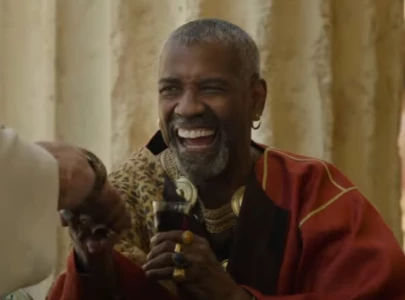





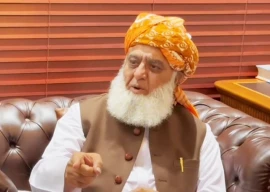
1731842248-0/Untitled-design-(21)1731842248-0-270x192.webp)

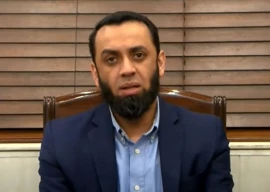







COMMENTS
Comments are moderated and generally will be posted if they are on-topic and not abusive.
For more information, please see our Comments FAQ